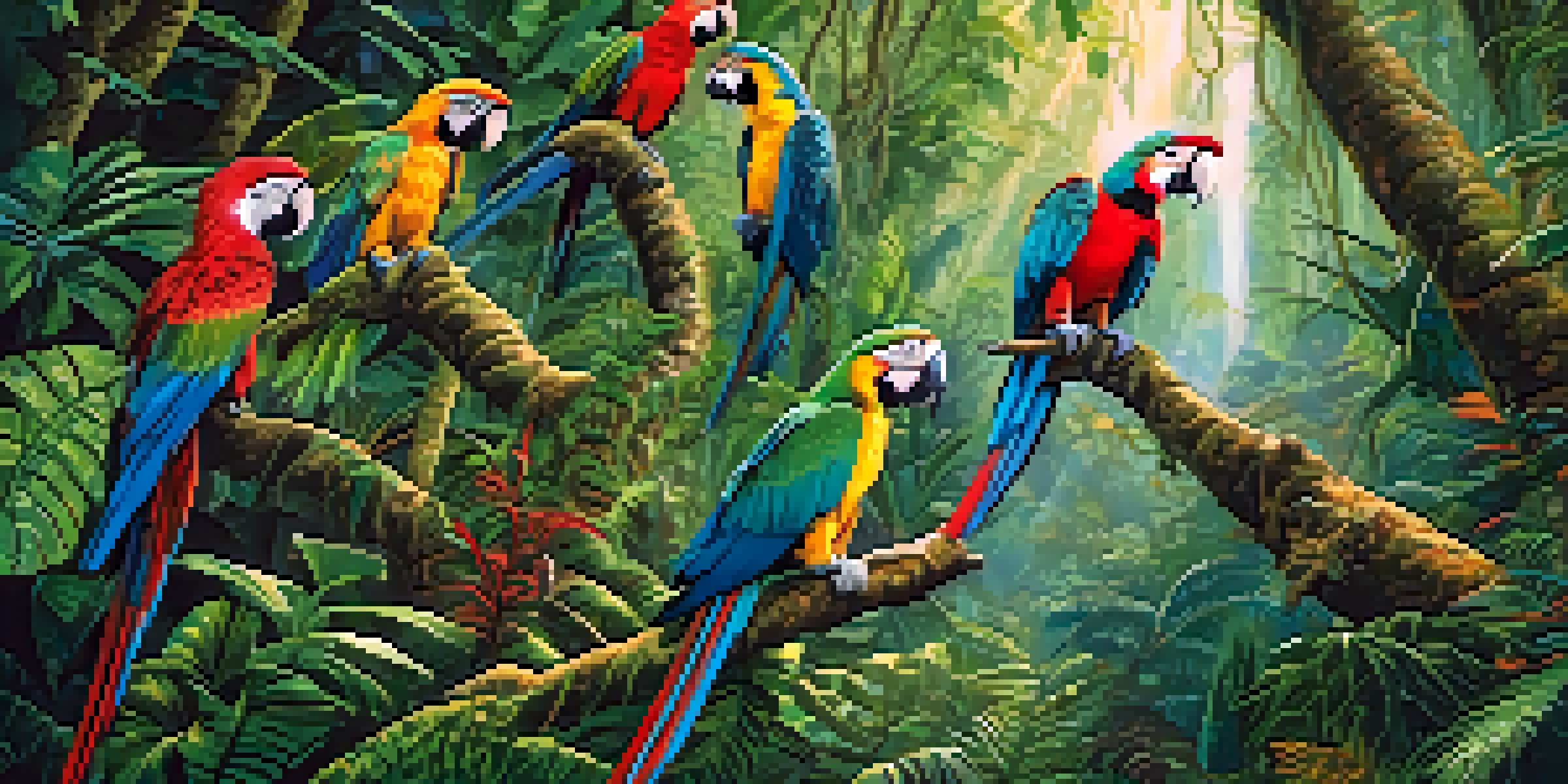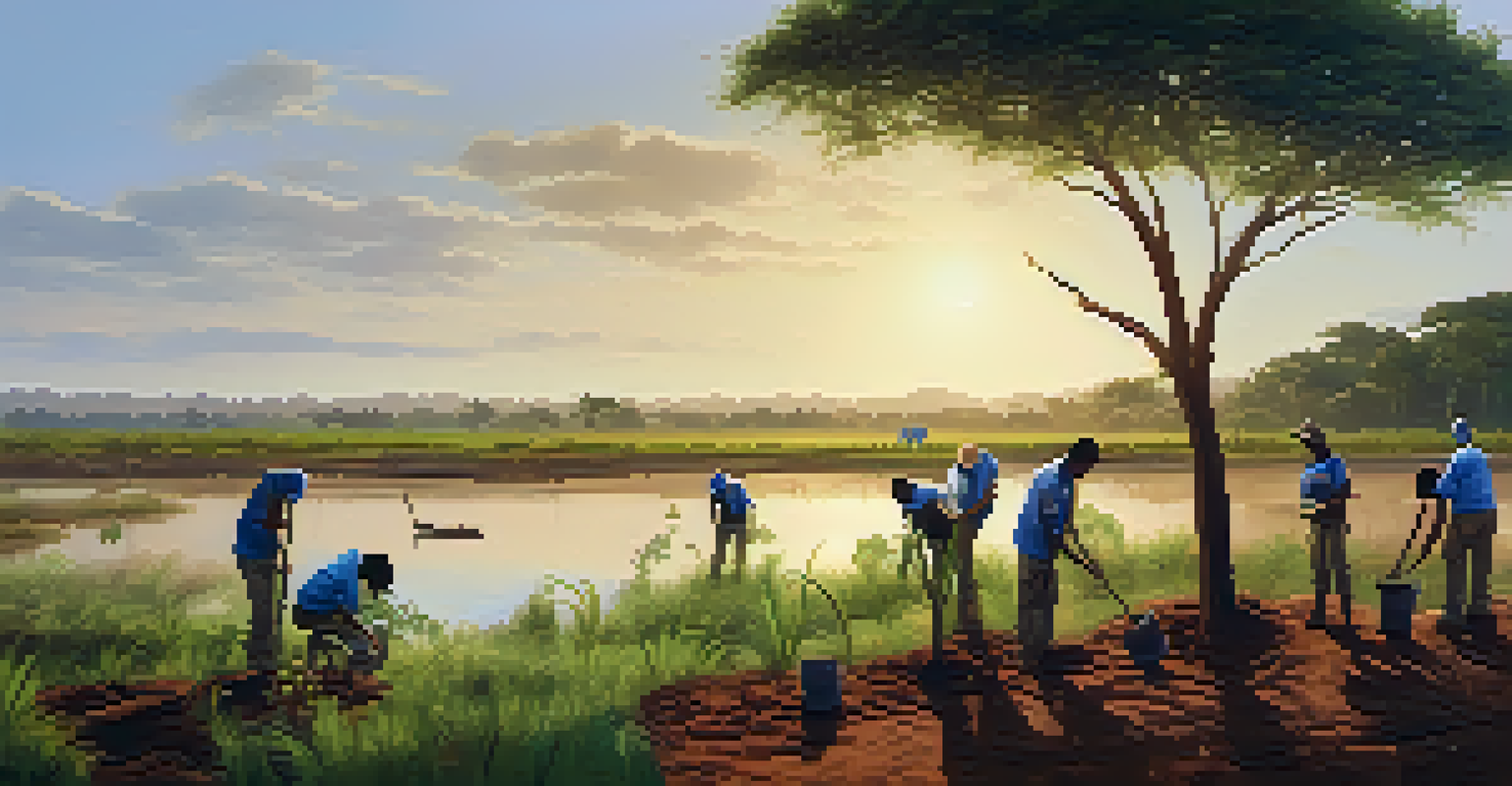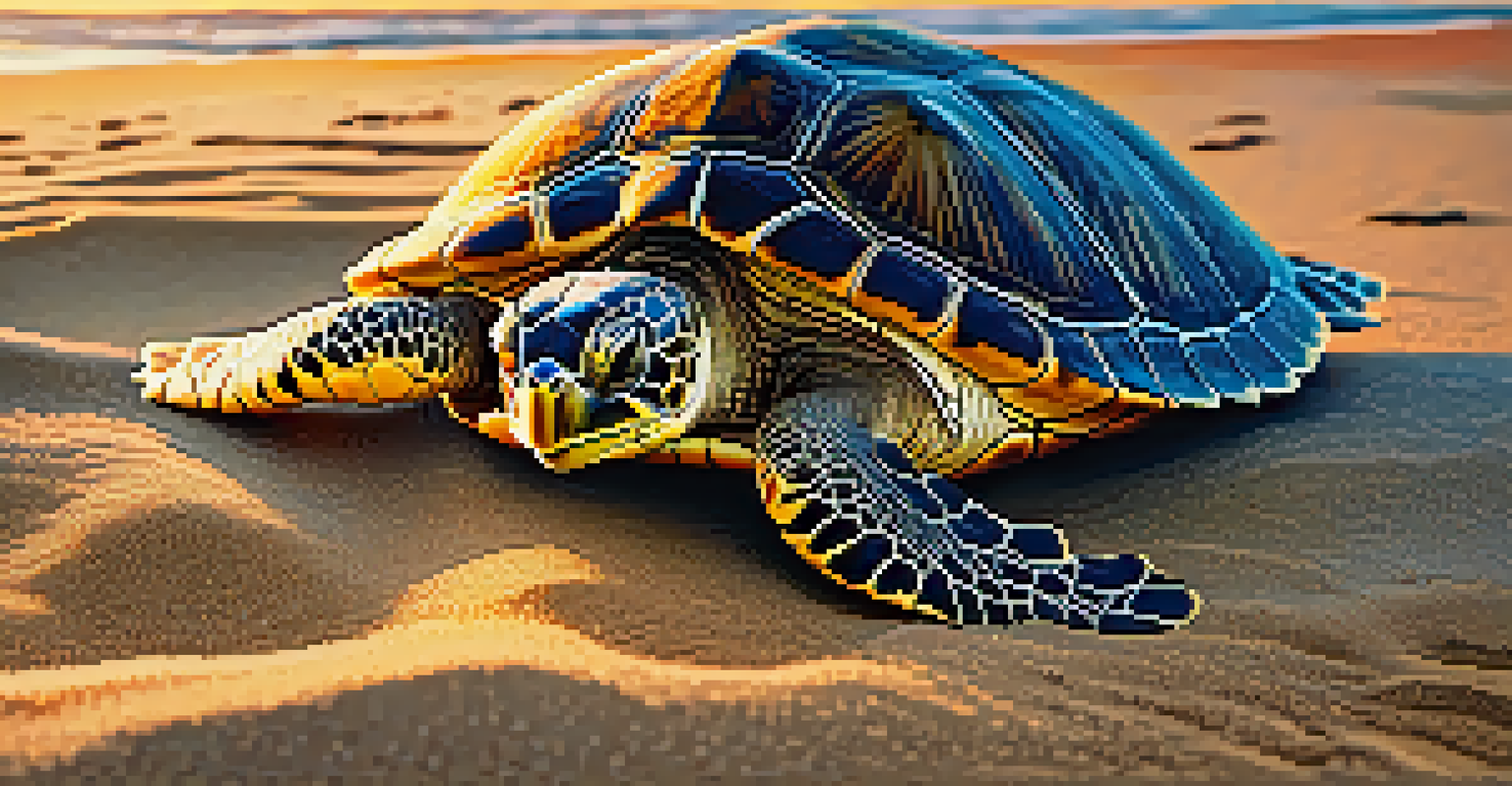Wildlife Conservation: Volunteer Opportunities in Brazil

The Importance of Wildlife Conservation in Brazil
Brazil is home to an incredible diversity of wildlife, from the Amazon rainforest to the Pantanal wetlands. Unfortunately, many species are threatened due to habitat loss, illegal poaching, and climate change. Wildlife conservation plays a crucial role in protecting these unique ecosystems and the animals that inhabit them.
The environment is where we all meet; where we all have a mutual interest; it is the one thing all of us share.
By focusing on conservation efforts, we can help preserve biodiversity and ensure that future generations can enjoy Brazil's natural beauty. For instance, initiatives aimed at restoring habitats not only benefit wildlife but also promote sustainable tourism, which can be a vital source of income for local communities.
Volunteer opportunities in Brazil allow individuals to contribute directly to these conservation efforts, making a tangible difference in the lives of both animals and humans. Engaging in hands-on projects can be a life-changing experience, fostering a deeper connection to nature and an understanding of the challenges facing wildlife.
Types of Wildlife Conservation Projects Available
In Brazil, there are a variety of volunteer projects focused on wildlife conservation. These range from working with endangered species like jaguars and sea turtles to participating in habitat restoration and reforestation efforts. Each project offers a unique opportunity to learn about local ecosystems and contribute to their preservation.

For instance, some volunteers might assist in monitoring animal populations, collecting data that is vital for conservation strategies. Others may engage in community outreach, educating locals about the importance of protecting their natural environment. This multifaceted approach ensures that conservation initiatives are both effective and sustainable.
Wildlife Conservation's Importance
Brazil's unique ecosystems are under threat, making wildlife conservation essential for preserving biodiversity.
Whether you prefer hands-on work in the field or engaging with communities, there’s a project that fits your interests and skills. The diversity of opportunities ensures that every volunteer can find a role that resonates with their passion for wildlife and conservation.
How to Choose the Right Volunteer Program
Selecting the right wildlife conservation volunteer program can be overwhelming, but a few key factors can simplify your decision. First, consider your interests and skills—do you want to work directly with animals, or would you prefer to focus on research and data collection? Knowing what excites you will help narrow down your options.
In nature's economy, the right to use a thing is offset by the duty to protect it.
Next, research the organizations offering these programs. Look for reputable organizations with a proven track record in conservation efforts. Reading reviews from past volunteers can provide valuable insights into what to expect and how impactful the program is.
Lastly, think about the location and duration of the program. Brazil’s vast landscapes offer various ecosystems to explore, so choose a program that aligns with your travel preferences and time availability. This will help ensure a fulfilling experience that meets your expectations.
Essential Skills and Qualifications for Volunteers
While many wildlife conservation programs welcome volunteers from all backgrounds, certain skills can enhance your experience. Basic knowledge of ecology or biology can be beneficial, as it helps you understand the scientific principles behind conservation efforts. However, you don’t need a degree to make a positive impact.
Practical skills, such as animal handling or first aid, can also be valuable. Many organizations appreciate volunteers who are willing to learn and adapt to new challenges. If you have a passion for wildlife and a willingness to get your hands dirty, you’ll be a great fit for most programs.
Diverse Volunteer Opportunities
Volunteers can engage in various conservation projects, from hands-on animal care to community education, tailored to their interests.
Moreover, strong communication and teamwork skills are essential. You’ll often work alongside locals and other volunteers, so being able to collaborate effectively will enhance the overall experience and contribute to the success of conservation efforts.
The Impact of Volunteering on Local Communities
Wildlife conservation volunteering in Brazil goes beyond just helping animals; it also positively impacts local communities. Many projects incorporate community engagement, aiming to educate residents about the importance of preserving their environment. This can lead to greater support for conservation initiatives and sustainable practices.
By working with locals, volunteers can help develop eco-friendly tourism opportunities, providing alternative income sources that reduce reliance on activities that harm wildlife. For example, training locals in guiding tours can create jobs while promoting awareness and appreciation of their natural surroundings.
Ultimately, this collaborative approach fosters a sense of ownership and pride in the local environment, encouraging communities to protect their wildlife and habitats. It’s a win-win situation for both the animals and the people who share their home with them.
Logistical Considerations for Volunteers
Before embarking on a volunteer journey to Brazil, it’s essential to consider logistical aspects such as travel, accommodations, and health precautions. Researching the best time to visit can help you avoid extreme weather conditions and ensure a more enjoyable experience. Brazil's climate varies greatly, so understanding the seasonal changes in your chosen region is crucial.
Accommodations can range from rustic lodges to more comfortable settings, depending on the program you choose. Some organizations provide meals and lodging, while others may require you to find your own. Clarifying these details ahead of time will help you budget accordingly and set realistic expectations.
Personal Growth Through Volunteering
Participating in wildlife conservation fosters personal development, resilience, and lasting connections with others who share a passion for the environment.
Health precautions, such as vaccinations and travel insurance, should also be on your checklist. Familiarizing yourself with the local healthcare system and emergency contacts can provide peace of mind while you focus on making a difference.
Personal Growth Through Volunteer Experiences
Volunteering in wildlife conservation not only benefits the environment but also promotes personal growth. Many volunteers report transformative experiences that challenge their perspectives and enhance their understanding of global issues. This immersion in nature and wildlife can foster a deep sense of empathy and responsibility towards the planet.
Through hands-on work, you’ll develop new skills, gain practical experience, and build confidence in your abilities. Facing unexpected challenges in the field can teach you resilience and adaptability—qualities that are valuable in all areas of life.

Moreover, the friendships formed with fellow volunteers and locals can lead to lasting connections and a broader worldview. These experiences often inspire a lifelong commitment to conservation and environmental stewardship.